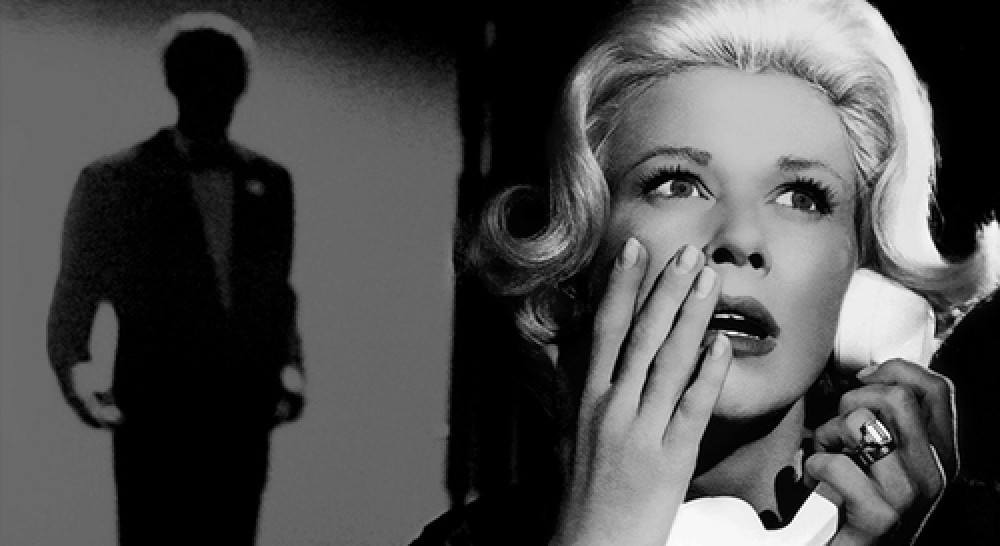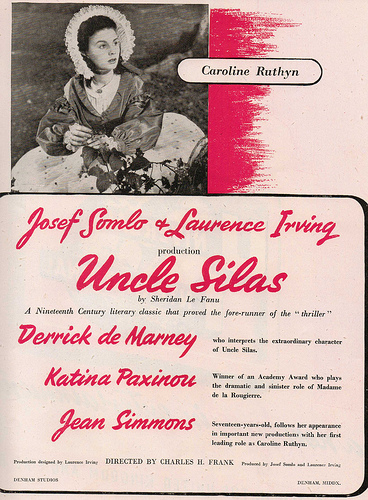All are very welcome to join us for the second of this term’s Screening and Discussion sessions, which will take place on Monday the 8th of February, 5-7pm, in Jarman 7.
We will be showing Uncle Silas, also known as The Inheritance, (1947, Charles Frank , 103 mins). We had previously scheduled this for November but technical difficulties meant we were unable to screen the film on that occasion.
Like Hitchcock’s Rebecca, Uncle Silas is adapted from a novel which places a woman in peril at its heart. Irish novelist Sheridan Le Fanu’s work has been far less adapted for film and television than Daphne Du Maurier’s, however. Most adaptations focus on his novella Carmilla – notably Carl Theodor Dreyer’s Vampyr (1932), Roger Vadim’s Blood and Roses (1960) and Roy Ward Baker’s Hammer Horror The Vampire Lovers (1970). Subsequent to the 1947 film version we are showing, Uncle Silas also appeared as a 2 part German TV series (Onkel Silas) in 1977 and a British TV 3 parter renamed The Dark Angel in 1989 starring Peter O’Toole, Beatie Edney and Jane Lapotaire.
Perhaps the reluctance to adapt Le Fanu is connected to earlier unsuccessful adaptions. ‘Cane’ reviewed the 1947 film for Variety (22nd October, 1947) when it was released in London. The review’s opening line opined that the ‘[o]nly excuse for this blood-and-thunder meller appears to have been the desire to screen what is alleged to be one of the first thrillers’. This therefore pejoratively implies that melodrama (‘meller’) has little merit in and of itself – especially if it is of the ‘blood-and-thunder’ variety.
The review continues in an even more negative vein as it opines that the fact ‘Le Fanu’s novel is still in public demand probably explains why over $1,000,000 was spent on a yarn that should have been allowed to stay on the shelf.’ It outlines the story and rates it ‘hopeless’. The acting comes in for further criticism as Derrick de Marney ‘hams all over the place’ and surprise is expressed at the casting Jean Simmons and Katina Paxinou in the main female roles. The film is ‘labored hokum’ which ‘can add little to British prestige. It’s not for export.’
We can interestingly contrast this reception of a UK product based on a classic novel to Variety’s earlier view on an US production based on a contemporary work. Rebecca was positively received by Variety (26th March, 1940) with both the film and the source novel praised: “Rebecca’ is an artistic success… noteworthy in its literal translation of Daphne du Maurier’s novel to the screen, presenting all of the sombreness and dramatic tragedy of the book in its unfolding’.
While Variety’s Uncle Silas review is not especially complimentary, the review’s closing line perhaps suggests an attitude we can adopt during the screening if the film’s gothic thrills and spills are less than satisfactory: the ‘‘[b]est hope for this is to exhibit it as a comic interpretation of a past era’.
Do join us if you can.

